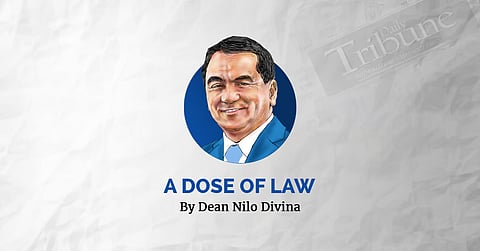
- NEWS
- the EDIT
- COMMENTARY
- BUSINESS
- LIFE
- SHOW
- ACTION
- GLOBAL GOALS
- SNAPS
- DYARYO TIRADA
- MORE

In the 2004 case of Regino v. Pangasinan Colleges of Sciences and Technology et al., no less than the Supreme Court recognized the “No Permit, No Exam” policy as a practice being imposed by academic institutions. The Supreme Court noted that students’ failure to pay their financial obligations, such as tuition fees, before every preliminary, midterm and final examination was regarded as a valid ground for the school to deny them the opportunity to take the exams.
Two decades later, President Ferdinand “Bongbong” Marcos Jr. signed a new law banning the said practice, i.e., Republic Act No. 11984 otherwise known as the “No Permit, No Exam Prohibition Act.” This law is applicable to all public and private basic (K to 12) institutions, higher education institutions, and technical-vocational institutions (TVIs) provided that in the case of the latter, the law shall only cover long-term courses exceeding one year.
Although the title of the new law seems to favor students only, Section 4 thereof actually balances the rights of both the students and the educational institutions by exercising just and reasonable supervision of the latter and ensuring that educational opportunities are made available to students regardless of their economic status.
For students to take the exams even before they can pay their full tuition and other fees, they must secure the necessary certificate from the relevant Municipal, City or Provincial Social Welfare and Development Officer, or the Regional Office of the Department of Social Welfare and Development (DSWD) indicating their disadvantaged status due to calamities, emergencies, force majeure and other good or justifiable reasons in accordance with the rules and regulations to be issued by the DSWD.
However, even without the necessary certificate, the educational institutions may voluntarily allow a “disadvantaged student” with outstanding tuition and other fees to take examinations and release their relevant records and credentials in accordance with its policies, rules and regulations.
All covered public and private educational institutions found guilty of violating the law shall be subject to administrative sanctions that may be imposed by the Department of Education, Commission on Higher Education, or Technical Education and Skills Development Authority, as the case may be.
This notwithstanding, the law did not leave academic institutions with no rights and power. As noted in the Regino case, the need for a school to fund its facilities and to meet astronomical operating costs is a reality that must be recognized.
Hence, to safeguard the interest of academic institutions, the “No Permit, No Exam Prohibition Act” does not prohibit them from requiring the submission of a promissory note, withholding the records and credentials of the students, and such other legal and administrative remedies available to them for the collection of unpaid tuition and other fees.
Indeed, the fulfillment of our government’s policy to protect and promote the right of all citizens to quality and accessible education necessitates striking a balance between the rights of students and of academic institutions.
For more of Dean Nilo Divina’s legal tidbits, please visit www.divinalaw.com. For comments and questions, please send an email to cad@divinalaw.com.
